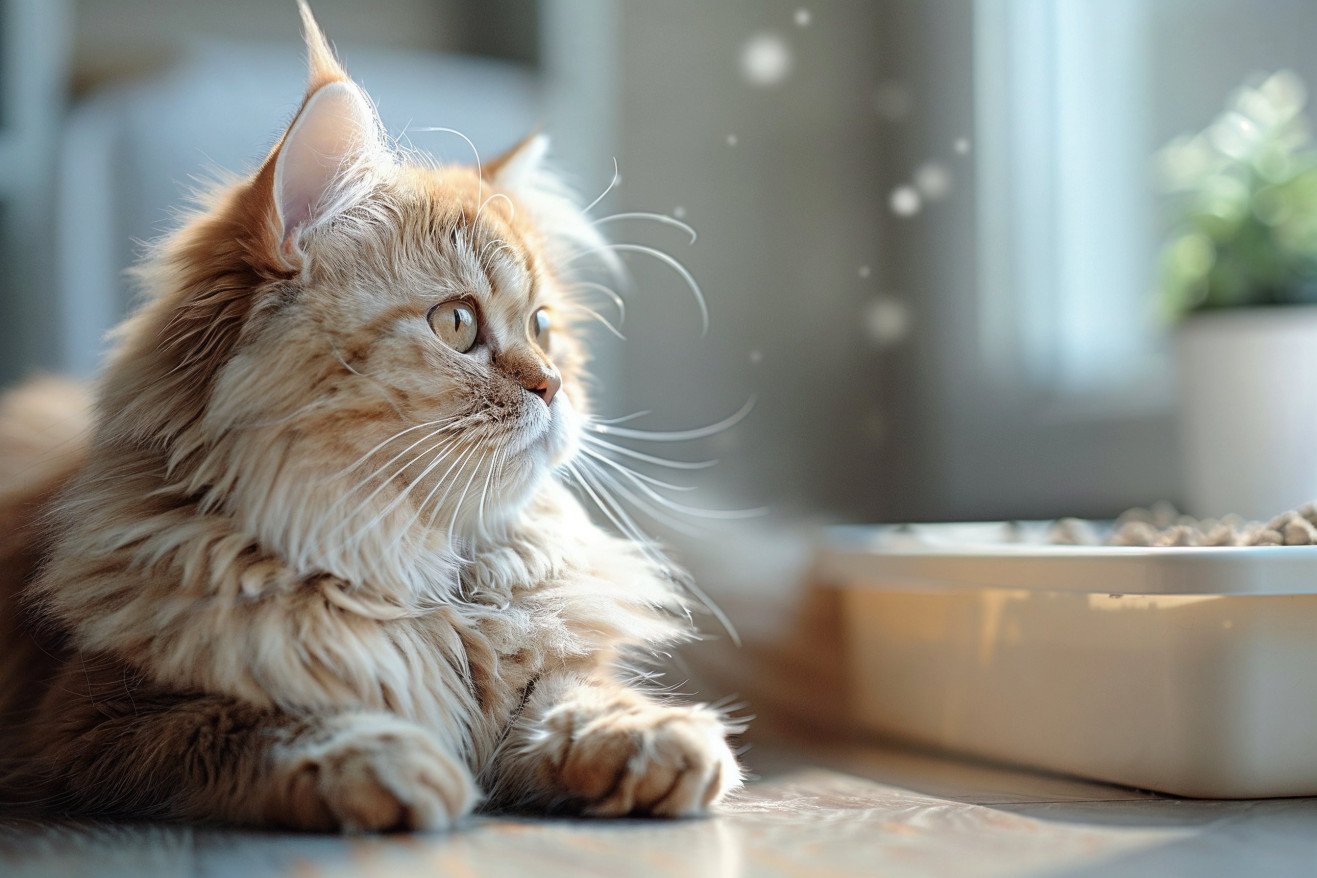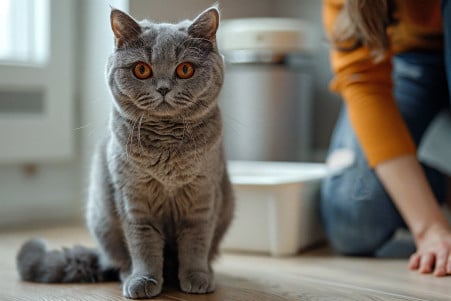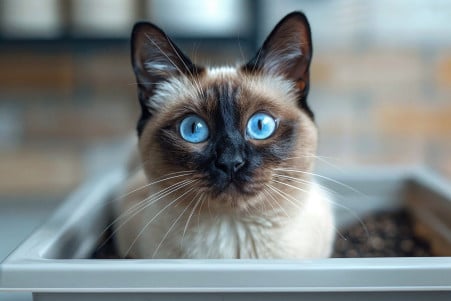Cracking the Cat Bathroom Code: Why Does My Cat Choose to Pee Outside and Poop Inside?
15 April 2024 • Updated 14 April 2024

If you’ve noticed that your cat is peeing outside the litter box but still pooping in it, there are several reasons why your cat may be avoiding the litter box to urinate, including a urinary tract infection, litter box aversion, stress, or territorial marking. Make sure to have your cat checked out by a vet to make sure there aren’t any underlying medical issues, clean any areas where your cat has urinated, and consider removing stressors or using a larger, unscented litter box.
In this article, we’ll review a number of studies in the fields of veterinary medicine, animal behavior, and feline science to help explain why cats may urinate outside the litter box while continuing to defecate inside it. By doing so, we hope to help you better understand the potential causes and solutions to this problem, so you can get back to living in peace with your cat.
Why is my cat peeing outside the litter box but pooping in it?
Dealing With Litter Box Aversion and Preferences
Dealing with litter box aversion is important when it comes to solving a cat's inappropriate urination problems. According to The Spruce Pets, litter box aversion can be caused by a number of things including the box not being cleaned often enough, not having enough boxes, and even the size and shape of the box. Cornell University also says that some cats can develop a strong aversion to certain types of litter based on their texture or the material they are made from.
Where the litter box is located can also play a big role in aversion. Cats prefer to have their litter boxes in a quiet, low-traffic area that is separate from their food and water, according to Cornell. By making sure that you have the right type of box, litter, and location that meets your cat's individual needs, you can help ensure that they will use the litter box regularly and avoid inappropriate elimination.
Finding the right combination of litter box factors may take some trial and error and close observation of your cat's habits and preferences. As World's Best Cat Litter points out, experimenting with different boxes, litters, and locations can help you find the best combination for your cat. With a little patience and a focus on your cat's individual needs, you can overcome litter box aversion.
A Good Litter Box Setup and Maintenance
Having a good litter box setup and keeping it clean is important for making sure your cat uses the litter box. According to Four Paws, cats like a litter box that has 2-3 inches of unscented, clumping litter and is easy for them to dig in and cover their waste. The Humane Society of the United States recommends that the box be big enough for the cat to turn around in comfortably and be in a quiet, easily accessible location away from their food and water.
It's also a good idea to have one litter box per cat, plus one extra, to make sure that there's always a box available and that no one cat can block another cat from getting to the box. PetMD says that you should scoop the litter box daily and clean it with a pet-safe cleaner at least once a week. Keeping the litter box clean and well-maintained will help make sure that your cat uses it and doesn't urinate outside of it.
Stress and Territorial Marking
Stress and anxiety are common reasons for litter box avoidance and inappropriate urination in cats. According to Just Cats Clinic, environmental changes like the addition of a new pet or person can cause stress and lead to territorial marking through urinating outside the litter box. Cats can also experience stress from the loss of a feline or canine companion, or from environmental changes like moving or rearranging furniture.
According to Paws Whiskers & Claws, cats are especially vulnerable when they are eliminating, so conflicts between cats in the same household can cause stress and lead to litter box avoidance. Stress and territorial marking can be reduced by creating a safe, secure environment and using pheromone products like Feliway. According to Alley Cat, it's important to make sure that any sources of stress or conflict are addressed in order to resolve issues with inappropriate urination.
Clean and Deter Inappropriate Elimination Areas
It is important to thoroughly clean any areas where the cat has urinated because the smell can draw the cat back to the same spot, which will reinforce the inappropriate behavior. As noted by the Best Friends Animal Society, enzymatic cleaners are the most effective at removing urine odors.
In addition to cleaning, making the soiled area less attractive can help deter the cat from returning. The Spruce Pets recommends using deterrents like citrus scents, aluminum foil, or double-sided sticky tape to make the area less appealing. It can also help to block the cat's access to the area until they have been using the litter box consistently.
Positive reinforcement, such as treats or praise, can help encourage the cat to use the litter box, according to wikiHow. By giving the cat a treat or praise when they use the litter box, you can help them develop and maintain the desired elimination pattern.
Retraining Methods to Get Your Cat to Use the Litter Box Again
If the problem continues even after you've tried to eliminate the potential causes, you may need to retrain your cat. According to Purr Partners, the first step to retraining is to confine the cat to a small space with the litter box. Then, over the course of a few weeks, you can gradually expand the cat's territory as long as they continue to use the litter box. Cats.com notes that you may want to talk to your vet about anti-anxiety medication that can help you get through the retraining period.
You can also use positive reinforcement, such as treats or petting, to help encourage the behavior you want, says Catster. That said, it's important to remember that retraining takes time and patience, and it may take several weeks or even longer to see results. Still, with a little work and a lot of love, you can overcome the problem and get back to enjoying a happy, healthy relationship with your cat.
Conclusion: How to Get Back on Track With Your Cat
Dealing with inappropriate urination will take time, dedication, and a willingness to find the root of the problem. It’s important to work with a vet to make sure there are no underlying health issues and to potentially get a prescription or two.
Making sure the litter box is a place that your cat wants to go and that there are no other stressors in their environment will help make sure that your cat continues to use the litter box. You may need to retrain your cat and use positive reinforcement if they continue to have issues. However, with the right steps, you can get back on track and make sure that your cat doesn’t have any more issues with inappropriate urination.


